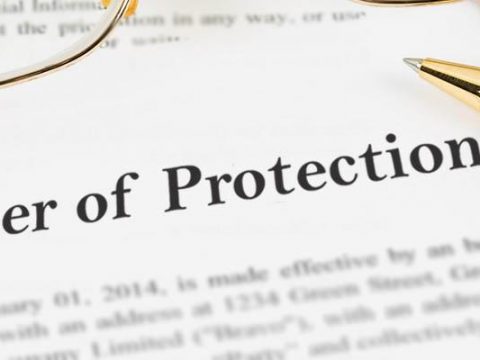Protection Orders
A Domestic Violence Protection Order (DVPO) is a civil court order (an order you request), issued by a commissioner or judge, meant to protect you from another person (generally, a family member, or a current or former intimate partner).
Washington State law defines domestic violence as almost any criminal act committed by a "family or household member" against another. Domestic violence includes five primary categories of abusive behaviors: physical violence, emotional abuse, sexual assault, economic control, and neglect.
“Family or household members” includes:- Spouses and former spouses.
- Parents of a child.
- Adults related by blood or marriage.
- Adults who are presently residing together or who have resided together in the past.
- Persons 16 years of age or older who are presently residing together or who have resided together in the past and who have or have had a dating relationship.
- Persons 16 years of age or older who have or have had a dating relationship.
- Persons with a biological or legal parent-child relationship, such as stepparents or grandparents.
Filing a DVPO, things to think about:
Filing for a DVPO starts a court process that requires you to be at court for hearings and get ready for hearings by gathering and submitting evidence. Other matters might need your immediate attention first (homelessness, therapy for trauma, financial problems, new school, childcare, new job, etc.)
You might not know where the other party is to serve them.
You might not be ready to see or engage with the batterer in court.
The batterer might hire a lawyer who is aggressive.
You might not be ready to discuss your personal matters in open court.
You might be pressured to file a family law case. There may be good reasons for you not to do that.
You may not feel ready to file a family law case.
The batterer can use anything filed in the DVPO case in a family law case. If you decided to dismiss your case voluntarily, the batterer can try to use that against you in court in the future.
Filing for a DVPO might make your batterer even more aggressive towards you.
Filing for a DVPO might cause your batterer to try to retaliate against you.
If you are thinking of filing a DVPO, please consult our Legal Advocate in order to determine the best options and strategy for your own personal situation:
Jill Jackson at [email protected] or call Our Sisters' House at 253-383-4275.
Civil standby orders are made in domestic violence cases where an order of protection has been imposed and the result is to prevent the alleged abuser/perpetrator from returning to his or her home. The civil standby order provides one-time access to the household, under the supervision of law enforcement for the purpose of retrieving a limited number of belongings and personal effects.
Procedurally, once the court signs the order authorizing a civil standby, the appropriate local law enforcement would be contacted. They would meet you at your residence and supervise you for a short period of time while the belongings are retrieved. Generally, you will likely only have 15-20 minutes before the civil standby is ended by law enforcement. The alleged victim has the right to be present and any disputes as to ownership of property will likely be resolved, at this juncture, in the favor of the individual still residing in the residence. It is possible, though not very likely, that a second civil standby could be authorized. Therefore, make sure that anything of importance is retrieved the first time.
Remember, in situations of no-contact, contact cannot be made by either you or a third party on your behalf. Do not just send a friend or family member to “pick up your things”. That could be construed as a violation of a court order. So, take advantage of the civil standby process if you can. Contact local law enforcement for information on facilitation.
Revised Code of Washington
RCW 26.50.080
Issuance of order—Assistance of peace officer—Designation of appropriate law enforcement agency.
(1) When an order is issued under this chapter upon request of the petitioner, the court may order a peace officer to accompany the petitioner and assist in placing the petitioner in possession of those items indicated in the order or to otherwise assist in the execution of the order of protection. The order shall list all items that are to be included with sufficient specificity to make it clear which property is included. Orders issued under this chapter shall include a designation of the appropriate law enforcement agency to execute, serve, or enforce the order.
(2) Upon order of a court, a peace officer shall accompany the petitioner in an order of protection and assist in placing the petitioner in possession of all items listed in the order and to otherwise assist in the execution of the order.
DVPO Packet for a Petition
Link to WA state DVPO Court Forms
Emergency Procedure for a Proection Order during COVID




